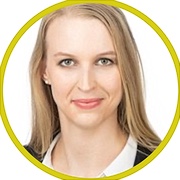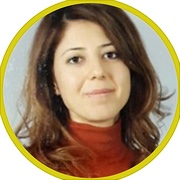Computer-based formative Assessment in Science Education
- Type of event: Seminar
- Institution: Faculty of Educational Science
- Funding period: 01.04.2023 until 31.03.2024
- Short title: CfA
Extract from the funding application: "We believe that the ability of pre-service teachers to design their own summative and formative assessment methods and strategies by using digital notebooks, to analyse the data obtained from these practices, and to share statistical analysis results by using graphs and tables in a short period of time can make significant contributions to the teaching and learning process."
Orientation of the seminar

The seminar was thematically embedded in formative assessment, which is relevant for teaching in schools. The aim was to provide prospective teachers with a theoretical basis for assessing student performance in order to provide diagnostic information for improving teaching and learning. The seminar covered the differences between formative and summative assessment, different forms of formative assessment (e.g. peer and self-assessment) and the provision of specific feedback. The participants created diagnostic tasks on a self-chosen topic and developed specific feedback on this.
The project also enabled student teachers to learn about "digital-based assessments" and "teaching activities" using Jupyter notebooks. Formative assessment methods were used with the programming languages Python and R Studio. Tools such as "nbgrader" enabled the creation of quizzes and automatic feedback. We also used Python to develop suitable approaches for peer assessments and visualised concept relationships using concept maps and Jupyter packages. We also used Jupytercards to create simulation-based questions and feedback for various specialised content.

stem t4l / unsplash
Review and results

The practical outcome of the project is that student teachers will be able to develop classroom assessment and evaluation activities using Jupyter notebooks. We have shown that multiple choice tests, homework, project and flashcards and peer assessment can be used. Fast digital feedback was emphasised as an important method for improving the teaching and learning process, and tools were presented that enable prompt feedback to students, even in large and heterogeneous classes. The development of new applications with the programming languages offered by Jupyter was also demonstrated. Even student teachers from humanities or language degree programmes were able to acquire basic programming skills. The advantages of Jupyter notebooks for creating and sharing learning materials and their visual superiority were also discussed.
Despite initial uncertainties and prejudices about digital applications, even students with little programming knowledge quickly adapted to using Jupyter notebooks. The results of the project tasks created at the end of the semester and the results of the pre-post test confirmed this observation.
We plan to make the course materials that we have developed as part of the project available on the university's open access platforms. We also think that the section for the departments offering computer programming content in particular could be of interest in terms of evaluation.
The lecturers' experience

From an academic point of view, the contributions of the project are as follows: In addition to the programming language R, lecturers have also acquired knowledge of Python. It is planned to use the Python programming language and the numerous visualisation packages it offers to visualise their own scientific work and projects. In addition, the experience gained from this project has helped to develop new project ideas in connection with computer-based or digital assessments.
Persons involved
Faculty of Educational Science
Applicants: Dr Güler Yavuz Temel, Dr Julia Barenthien
Funding line: Subject-specific data literacy
Funding period: 01.04.2023 - 31.03.2024
Course in winter semester 23/24: Seminar Priority Topics in Educational Science: Formative Assessment with Digital Tools (link to the Stine course catalogue)


